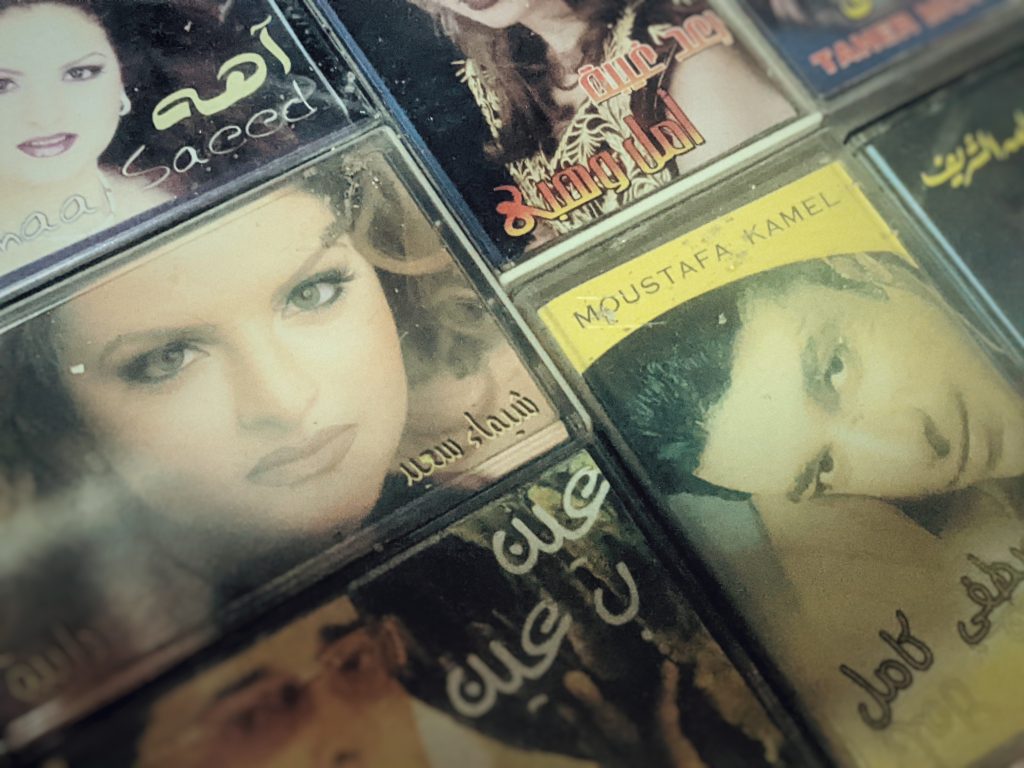Friends have often relayed to me joyful childhood memories of visiting the trendiest cassette shops to request a mixtape of all the latest Egyptian songs with a sprinkle of some Western pop hits. Jumping on the school bus with a freshly minted cassette and Sony Walkman in hand was a sure way to climb the popularity ladder. The more raunchy songs are also remembered fondly in Egypt’s cassette culture, often hidden away in a cassette tape under the bed or hidden on the book shelf, strictly for listening with headphones only, away from disapproving parents.
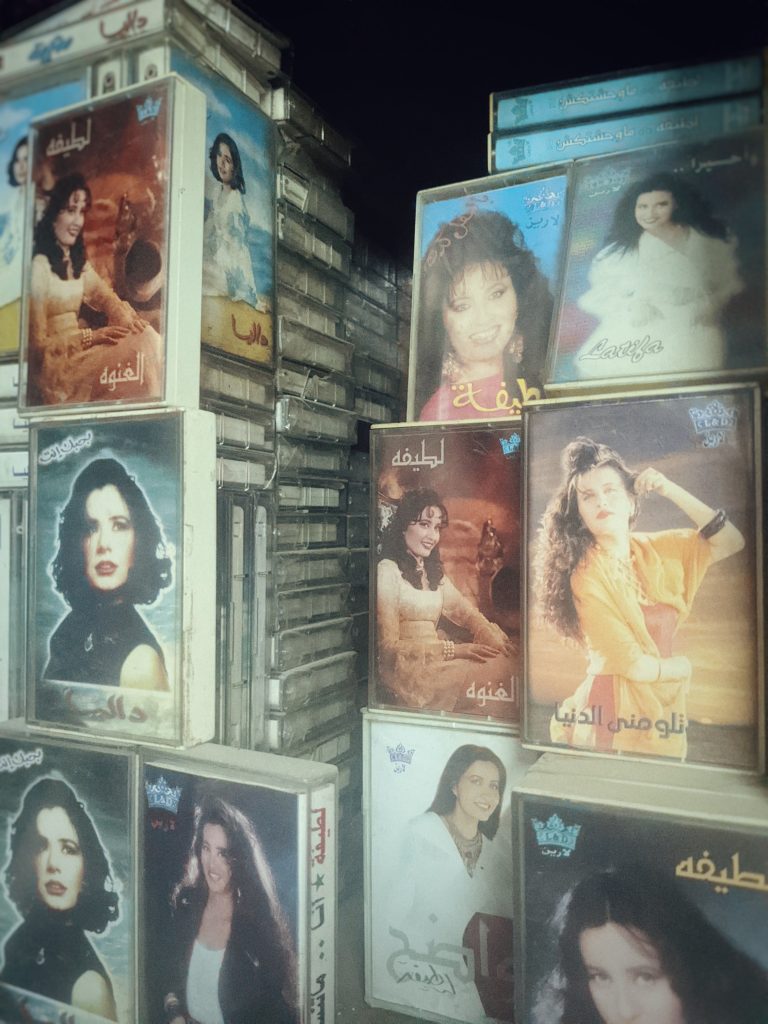
But these friends nowadays don’t own a single cassette tape, let alone a cassette player to bring them to life. With CDs, mp3 players, and now music streaming services like Anghami and Spotify providing almost any song ever recorded at the touch of a button, often for free if one is willing to put up with the repetitive commercials for soft drinks, cassette’s have naturally fallen out of favour.
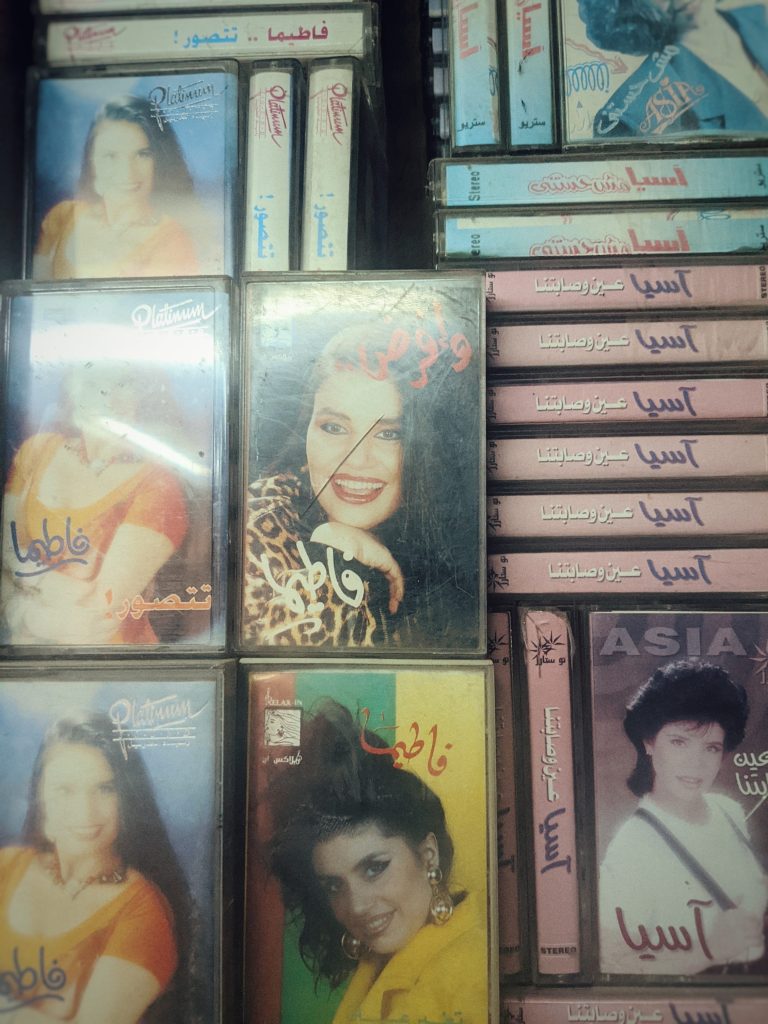
However, unlike much of the rest of the world, Cairo still has many shops selling cassette tapes and cassette culture still seems, at least to the uninformed observer, to be alive and well in Egypt. On Huda Sha’arawi Street in downtown Cairo, nestled between two antique shops, is one of many such cassette shops in Cairo, an antiquity in and of itself. Away from the blaring of horns and hurried employees rushing home to beat rush hour, a crackly recording of Fairuz welcomed me into the shop. The walls appeared tiled with cassette tapes as recordings from the likes of Um Kalthoum, Abdel Halim Hafez, and Amr Diab are stacked up on top of each other from floor to ceiling.
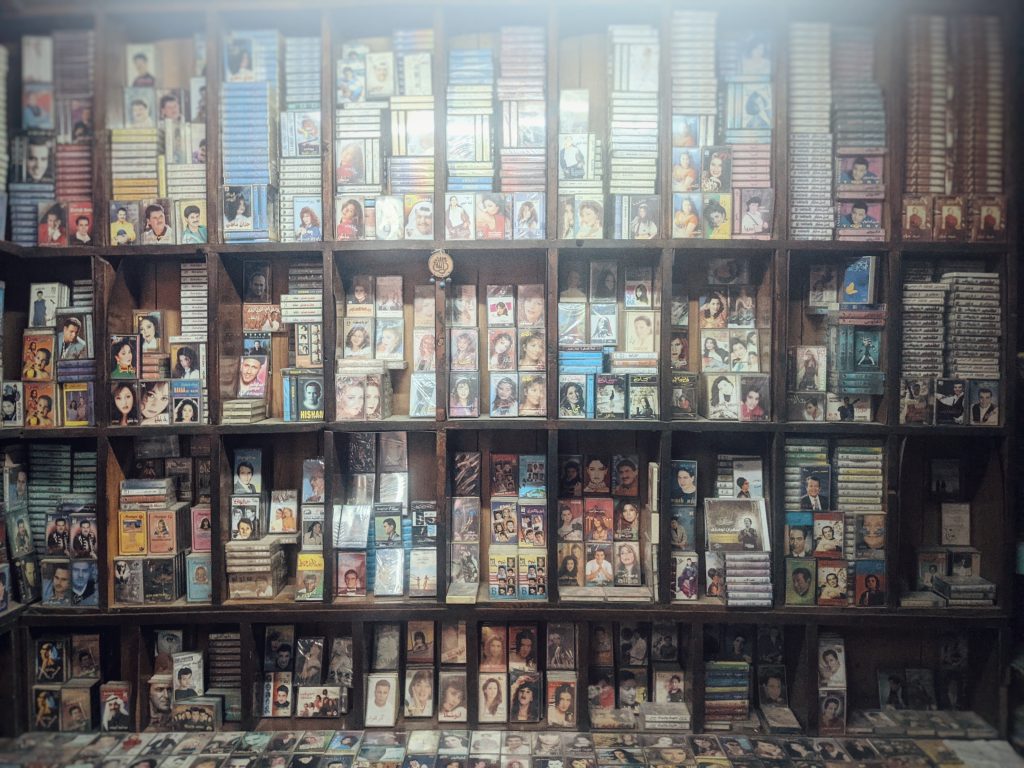
The shop owner proudly boasted of his collection of cassettes, which he evidently saw more as an all-encompassing archive of the greatest musical achievements in the Middle East and the wider world. Treating me as a patient in need of a prescription, he enquired as to my tastes and my general mood to ascertain my ailments. Searching through the cassettes, he retrieved a collection of Egyptian classics from famous old movies and suggested it, as would a pharmacist prescribe aspirin for a headache.
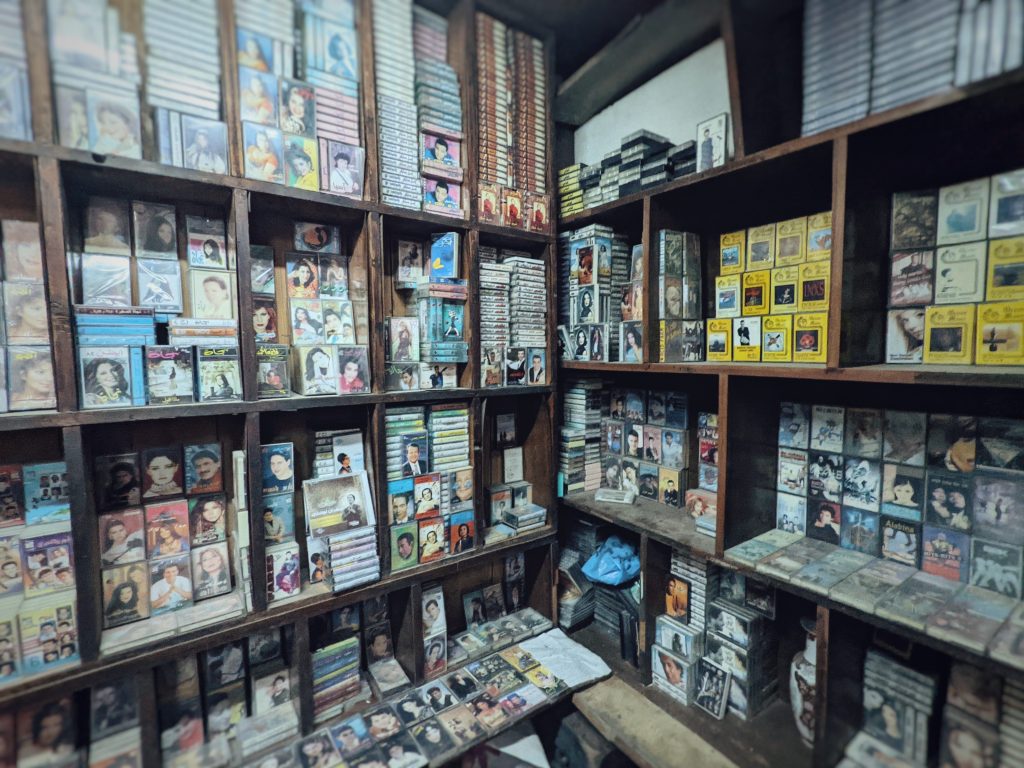
What is it about these spools of grey magnetic reels in plastic cases and their inferior and crackly sound quality that has such a continuing appeal in Egypt? And who is it who’s still buying these? To rewind and get a better sense of the history of cassette culture in Egypt and its stubborn perseverance in the digital age, I spoke with Andrew Simon, a historian of popular culture and media in the Middle East who has taken a particular interest in Egyptian cassette culture. In his recently published book entitled Media of the Masses: Cassette Culture in Modern Egypt, Simon explores these questions and more in a thoroughly enjoyable deep-dive into Egyptian cassette culture and its cultural and political implications.
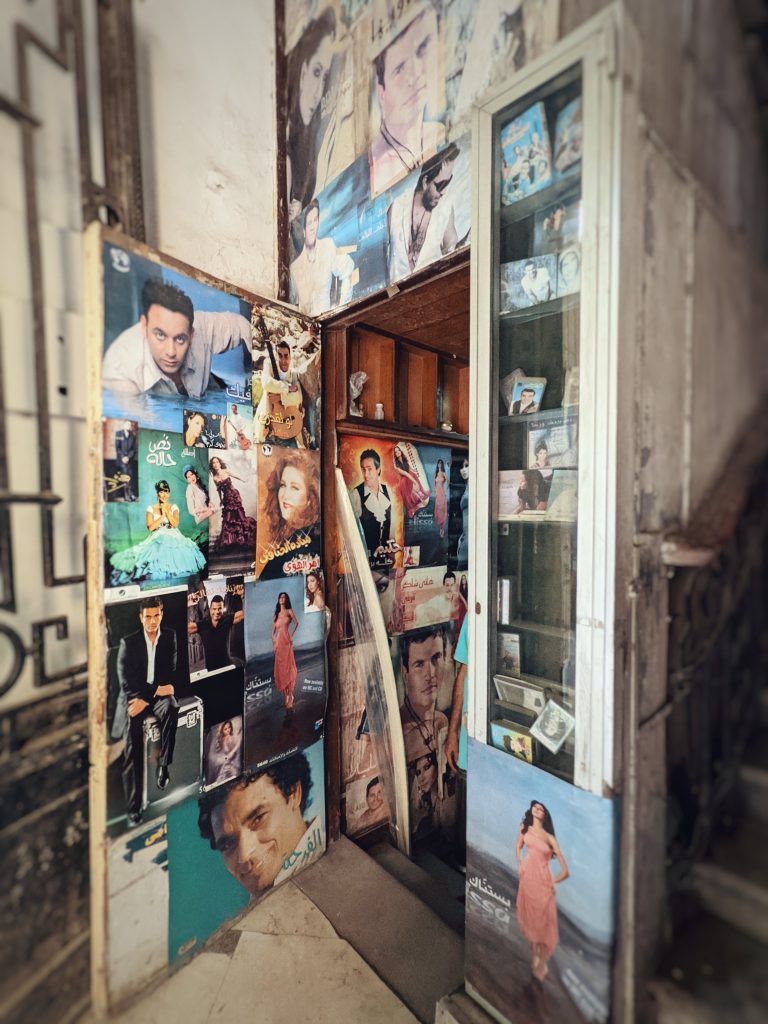
I started by asking about the origins of cassette culture in Egypt.
When did cassette culture kick off in Egypt and why was it more than just another medium to play music?
Cassette technology empowered countless people to create culture, circulate information, and challenge ruling regimes well before the internet ever entered our daily lives. In these regards, cassette tapes and cassette players did not simply join other mass mediums like records and radio; they were the “media of the masses.” In the case of Egypt, cassette culture gained traction alongside the development of a wider culture of consumption in the 1970s and 1980s. Against the backdrop of the oil boom and Egypt’s infitah, many citizens purchased cassette players abroad, where an increasing number of Egyptians momentarily migrated in search of higher wages, while others acquired them closer to home, where international companies, licensed representatives, and black market merchants collectively fueled a broader economy of desire. It was during this dynamic time in Egypt’s recent past that cassette technology came to play a key part in the making of the “modern home.”
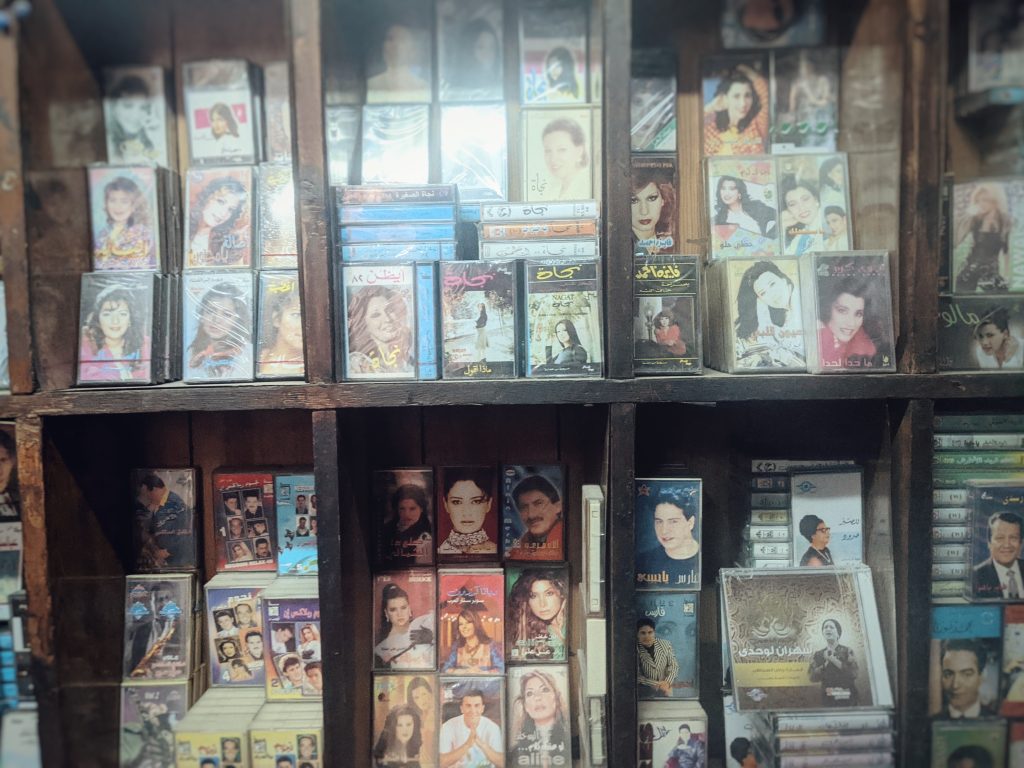
How were cassettes consumed in Egyptian popular culture?
The portability, affordability, and usability of cassette technology all contributed to its appeal. Cassette recordings circulated with ease within Egypt and well beyond its national borders. Compact, lightweight, and often battery-powered, cassette players could accompany one wherever they went. For this reason, some early advertisements went so far as to market the technology as “a moveable friend.” Egyptians, like many people the world over, enjoyed cassettes (often loudly!) in several settings. Tapes sounded at the beach, on the street, in homes, on the go in automobiles, and everywhere in between. Cassette technology and its users infinitely enriched Egypt’s soundscape and radically expanded the horizons of Egyptian culture.
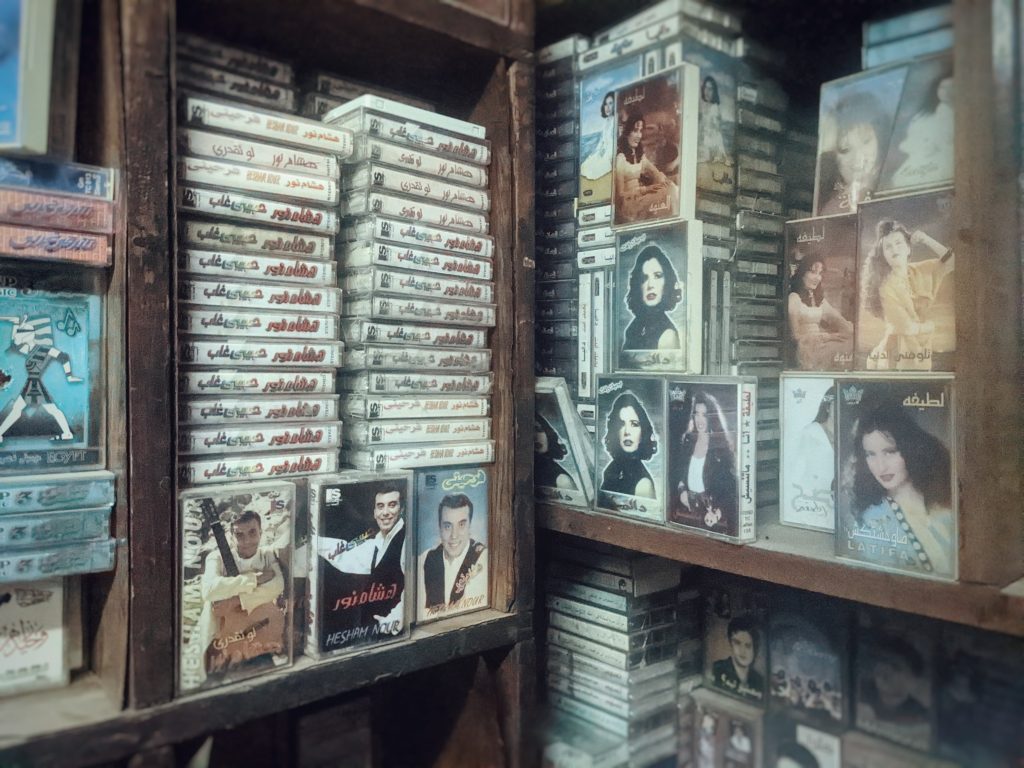
Where can you still buy cassettes in Cairo? Has the amount of shops and kiosks increased or decreased since you became interested in cassettes?
You can still purchase cassettes across Cairo, from Friday markets to curbside kiosks to Sawt al-Qahira’s downtown branch. Outside of these establishments, cassettes may also be found in other settings, such as warehouses and private holdings. At the same time, tapes, like other everyday objects, are not immune to the passage of time. Throughout my work for Media of the Masses, I witnessed the disappearance of cassette collections in Cairo. A towering glass display case filled with cassettes that I encountered in the summer of 2015, for instance, did not contain a single tape by the time I returned to it in the summer of 2019. One of the things I address in the book is not only the history of Egypt’s cassette culture but also its future.
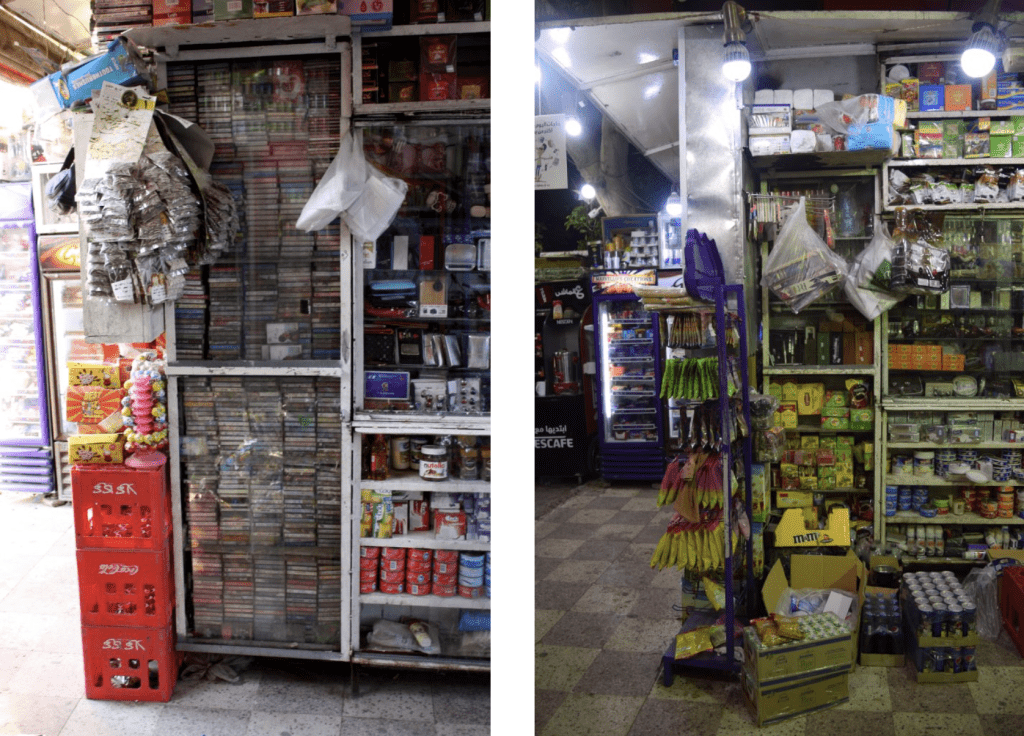
In an era of music streaming with the likes of Anghami and Spotify, why has cassette culture seemingly been able to persevere and who’s buying them?
The materiality of tapes and the memories associated with them contribute to the technology’s enduring appeal. There is something about holding a cassette in one’s hands and the amount of time, care, and attention that go into crafting a single mixtape. A digital playlist, by contrast, can be populated in a matter of minutes, if not seconds, and music streaming sites are not tactile like tapes, which many Egyptians continue to remember fondly. Here, one need only consider anytime a photograph of a cassette player surfaces on Facebook groups committed to showcasing Egypt’s past and the countless nostalgic comments that such posts regularly generate. Cassettes are more than a means of recording and circulating sounds. There is an emotional resonance with them.
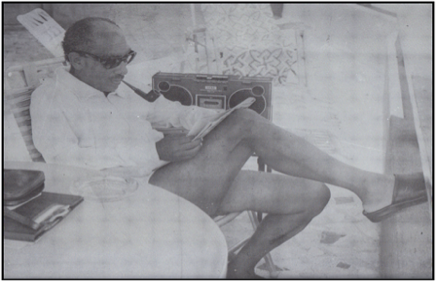
With a median age of just under 24 years old, most Egyptians potentially have never used a cassette or understand how they work, much like their counterparts in the US. Will cassette culture persevere in Egypt as the older population declines?
Media technologies, like many other things, have a way of becoming “new” again. A number of artists are releasing music on cassettes once more. One may purchase a tape of DJ Snake’s “Disco Maghreb,” for instance. These cassettes will likely resonate with younger people. At the same time, many cassettes from the 1970s and the 1980s continue to remain inaccessible to both younger and older listeners. Not all of the voices on these recordings, moreover, made the jump online. The perseverance of Egypt’s cassette culture, then, is also a matter of preservation. To play a small part on this front, I will be making my private collection of cassettes public later this year in a digital archive, where anyone will be able to access, explore, and enjoy a wide range of recordings.
For you personally, what is the charm and appeal of cassette tapes?
Cassette tapes provide us with a window onto the past and make many new stories about it possible.
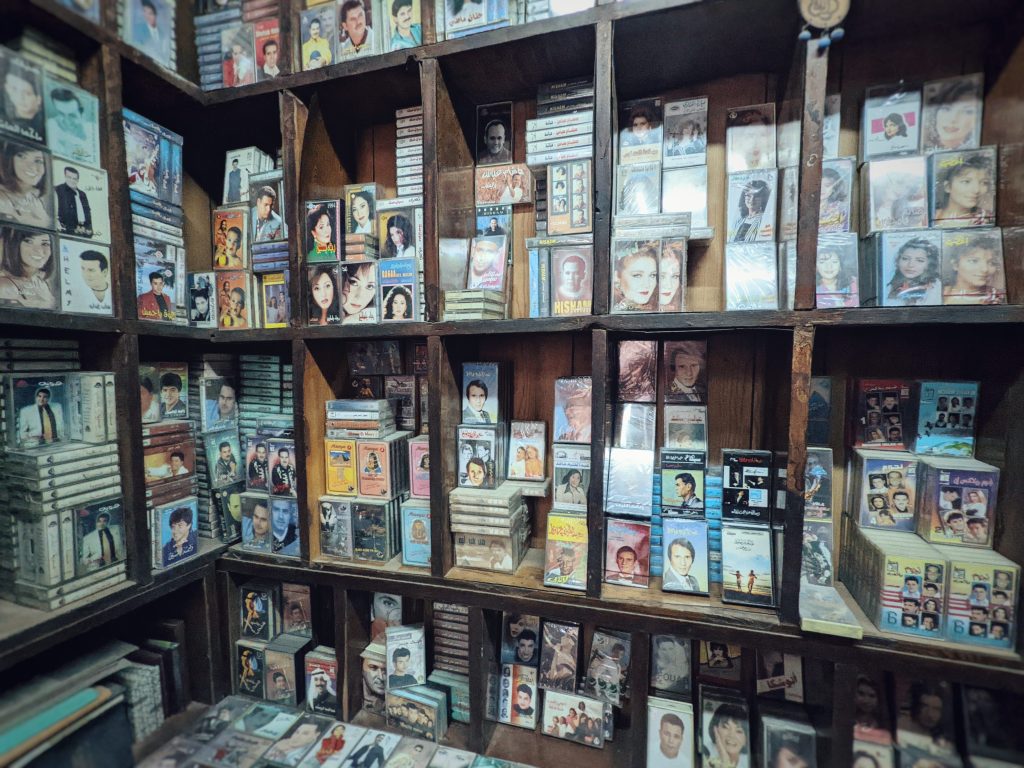
You can buy Andrew Simon’s thoughtful and very readable book Media of the Masses: Cassette Culture in Modern Egypt online and can keep up to date with with Andrew Simon’s thoughts on ‘all things mass media, popular culture, and modern Middle East history’ with his Twitter handle @simongandrew. An Arabic translation is also potentially in the works to share this important piece of scholarship with a wider audience.
WE SAID THIS… The Egyptian Female-Led Band That Is Bringing Zar Music To The Center Stage


